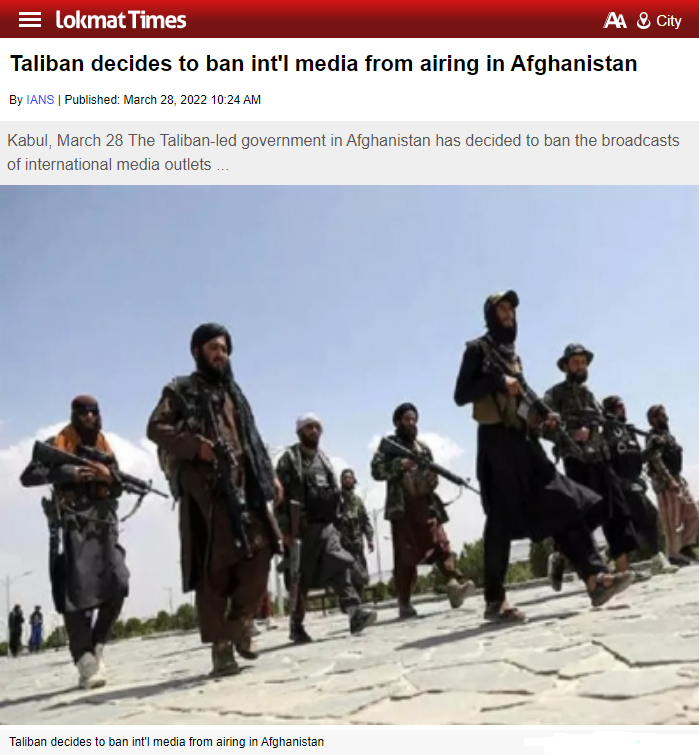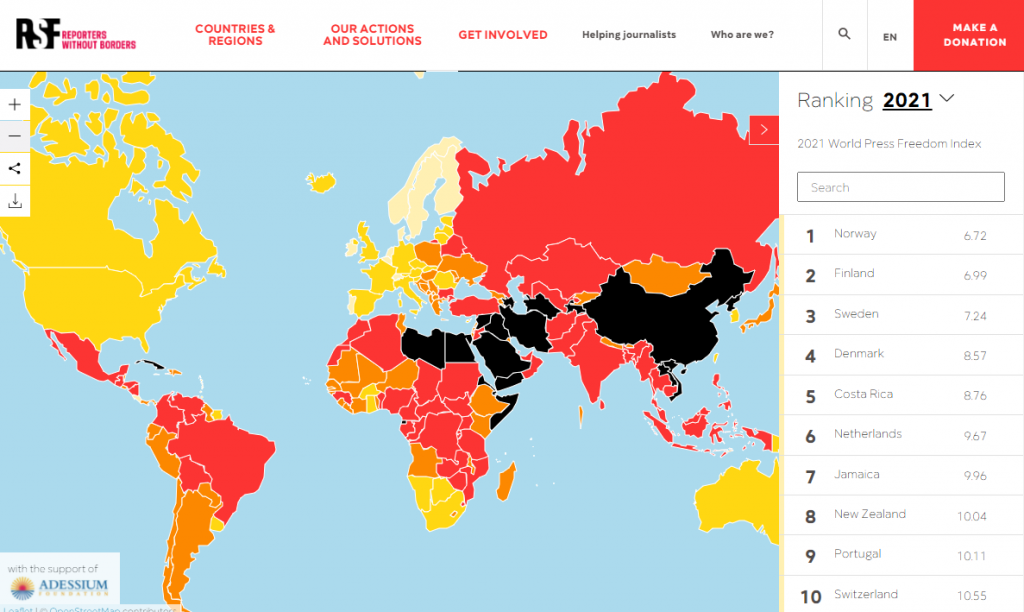
Source
New Taliban crackdown after the March 2022 clampdown on foreign TV stations: BBC News, Voice of America, Deutsche Welle, and CGTN (China Global Television Network). Since 1 December 2022, the broadcasts of Radio Ashna (the local version of the Voice of America) and Azadi Radio (produced by Radio Free Europe/Radio Liberty) have been banned. On 30 November 2022, the Taliban Ministry of Information and Culture stated that it had received complaints about the content of the programmes, but without giving details. VOA protested that a multi-year contract with the Taliban for the use of FM and mediumwave transmitters had been broken. However, the two radios, financed by the US government, continue to be receivable in the country on medium wave (972 kHz from Tajikistan) and short wave, the TV is receivable on the satellite channel Yahsat 469, and can also be received via digital platforms on the internet.
(Written by Fabrizio Carnevalini)




